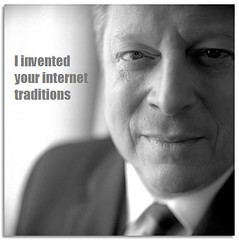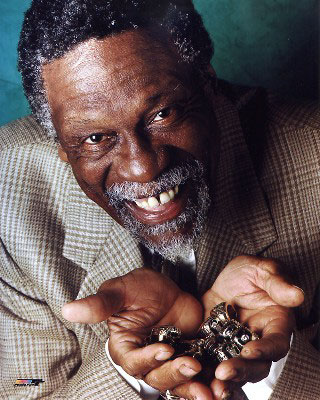Everything Happens To Me
I was typing up something about a guy at work, which inspired the post title, but then I realized that in text form, to people who haven't met him, it'd be utterly boring, so I scrapped it, but kept the post title because I like it despite not at all remembering how the song goes.
I'm currently reading Shamanism: Archaic Techniques of Ecstasy, by Mircea Eliade, which is/was a classic text on the subject in the comp religion/mythology field, published almost sixty years ago now in the original French. I gather from Wendy Doniger's forward that the book has fallen into some questionable repute (for one thing, Eliade was more a historian than an anthropologist, and the book is entirely composed of secondary sources, which is something I admit to not knowing when I bought it, but there weren't a lot of lay-scholarly books on shamanism competing with it for shelf space), but while offering some criticisms of her own she defends it as a valuable perspective on the topic and a useful starting place for inquiring minds (like mine, I guess; Doniger is herself not without her contentious critics). Anyway, I'm slogging through it with some interest although I feel like the first three chapters are actually the same chapter over and over.
The reason I bring it up is because of this passage, describing an Inuit shaman named Aua:
Aua summons his two helping spirits with a monotonous song:
Joy, joy,
Joy, joy!
I see a little shore spirit,
A little aua,
I myself am also aua,
The shore spirit's namesake,
Joy, joy!
He repeats this song until he bursts into tears; then he feels a boundless joy.
When I read that I went, roughly, "bu-whua?" He repeats the song until he cries? Why would the song make him cry? I actually get why he would feel a boundless joy after crying because I have, at times, felt something similar, and I guess that was my point of entry here. The thing to bear in mind, I suppose, is that despite modern context making the book's subtitle sound really porny, "archaic techniques of ecstasy," of the ecstatic, is Eliade's take on what constitutes shamanism per se and sets it apart from more generalized mysticism, medicine man, magic type mythology and ritual. The shaman's ability to achieve an ecstatic, transcendent state. So it would make sense that Aua is more capable of moving himself to great emotion than the average person today - or maybe what's elided in Eliade's summary of someone else's field notes is that (speculating) "repeats this song" glosses over something more like "repeats this song ceaselessly for five hours," which would probably be enough to put anyone into a very heightened and delicate emotional state. Of course, "anyone" simply wouldn't do that, would give up after ten or thirty or eighty minutes.
So: a given that the shaman is more willing and by nature of his skills more able than the average person to access extreme emotional conditions - and to do what is necessary to get there. But I also wondered, not for the first time (here we approach the point) whether other cultures and, in other times, our culture (or, if you like, our culture's recent ancestors) were simply more emotive. One common reaction to artistic works from different cultural moments, even relatively recent ones, is to find them somewhat maudlin. Maybe that's a semi-universal (and reciprocal?) response, the inaccessibility of one set of cultural assumptions and experiences to another, so that we're fooling ourselves if we think we can slip seamlessly into the skin of an original audience member. Or maybe our culture is just locked down and colder, emotionally, than the ones which have come before it. In Season Two of Carnivàle, in the episode where Jonesy's leg is healed, he whoops and hollers and does a bunch of abortive little quasi-Irish jigs, kind of dances in a half circle. It's an endearing and kind of loopy expression of elation, but on the episode's commentary track Daniel Knaupf (the show creater) says approvingly that it's a "very 1930s" expression of happiness. My first thought was to say "how the fuck would he know?" and my second was to concede that it's a very 1930s movie expression of same. But maybe it's really authentic: maybe similar scenes in films from that era are descriptive and journalistic rather than more expressionistic and heightened. Maybe merely seventy years ago we danced jigs of joy and wouldn't have found it so strange that a First Nations shaman from Canada made himself weep by singing a little ditty about his shore spirit.
I'm currently reading Shamanism: Archaic Techniques of Ecstasy, by Mircea Eliade, which is/was a classic text on the subject in the comp religion/mythology field, published almost sixty years ago now in the original French. I gather from Wendy Doniger's forward that the book has fallen into some questionable repute (for one thing, Eliade was more a historian than an anthropologist, and the book is entirely composed of secondary sources, which is something I admit to not knowing when I bought it, but there weren't a lot of lay-scholarly books on shamanism competing with it for shelf space), but while offering some criticisms of her own she defends it as a valuable perspective on the topic and a useful starting place for inquiring minds (like mine, I guess; Doniger is herself not without her contentious critics). Anyway, I'm slogging through it with some interest although I feel like the first three chapters are actually the same chapter over and over.
The reason I bring it up is because of this passage, describing an Inuit shaman named Aua:
Aua summons his two helping spirits with a monotonous song:
Joy, joy!
I see a little shore spirit,
A little aua,
I myself am also aua,
The shore spirit's namesake,
Joy, joy!
He repeats this song until he bursts into tears; then he feels a boundless joy.
When I read that I went, roughly, "bu-whua?" He repeats the song until he cries? Why would the song make him cry? I actually get why he would feel a boundless joy after crying because I have, at times, felt something similar, and I guess that was my point of entry here. The thing to bear in mind, I suppose, is that despite modern context making the book's subtitle sound really porny, "archaic techniques of ecstasy," of the ecstatic, is Eliade's take on what constitutes shamanism per se and sets it apart from more generalized mysticism, medicine man, magic type mythology and ritual. The shaman's ability to achieve an ecstatic, transcendent state. So it would make sense that Aua is more capable of moving himself to great emotion than the average person today - or maybe what's elided in Eliade's summary of someone else's field notes is that (speculating) "repeats this song" glosses over something more like "repeats this song ceaselessly for five hours," which would probably be enough to put anyone into a very heightened and delicate emotional state. Of course, "anyone" simply wouldn't do that, would give up after ten or thirty or eighty minutes.
So: a given that the shaman is more willing and by nature of his skills more able than the average person to access extreme emotional conditions - and to do what is necessary to get there. But I also wondered, not for the first time (here we approach the point) whether other cultures and, in other times, our culture (or, if you like, our culture's recent ancestors) were simply more emotive. One common reaction to artistic works from different cultural moments, even relatively recent ones, is to find them somewhat maudlin. Maybe that's a semi-universal (and reciprocal?) response, the inaccessibility of one set of cultural assumptions and experiences to another, so that we're fooling ourselves if we think we can slip seamlessly into the skin of an original audience member. Or maybe our culture is just locked down and colder, emotionally, than the ones which have come before it. In Season Two of Carnivàle, in the episode where Jonesy's leg is healed, he whoops and hollers and does a bunch of abortive little quasi-Irish jigs, kind of dances in a half circle. It's an endearing and kind of loopy expression of elation, but on the episode's commentary track Daniel Knaupf (the show creater) says approvingly that it's a "very 1930s" expression of happiness. My first thought was to say "how the fuck would he know?" and my second was to concede that it's a very 1930s movie expression of same. But maybe it's really authentic: maybe similar scenes in films from that era are descriptive and journalistic rather than more expressionistic and heightened. Maybe merely seventy years ago we danced jigs of joy and wouldn't have found it so strange that a First Nations shaman from Canada made himself weep by singing a little ditty about his shore spirit.
Labels: Culture, Mythology, Nonfiction, TV


